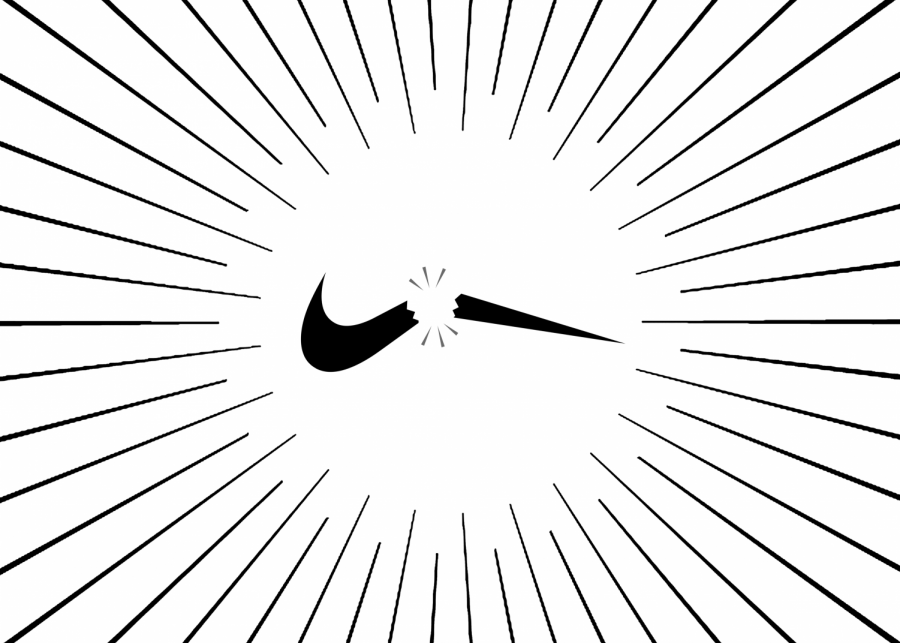Kaepernick isn’t the problem, Nike is
September 13, 2018
Sept. 4 marked a revolutionary moment for Nike: the multimillion-dollar athletic wear company uploaded a close-up photo of former San Francisco 49ers quarterback Colin Kaepernick. Emblazoned across the dorsum of Kaep’s high-definition nose reads the statement: “Believe in something. Even if it means sacrificing everything.”
The advertisement gives clear reference to a series of activist movements originating from Kaepernick, including the recent controversy over several football players (including Kaepernick) kneeling during the National Anthem to protest police brutality and systematic oppression in America. Kaepernick has also acted as benefactor to several nonprofit organizations promoting aid to underprivileged youth and “oppressed communities.”
Kaepernick’s benign activism has infuriated many who believe that kneeling for the Anthem is the ultimate act of disrespect to our country (worse than, say, flying the Confederate flag, a symbol of the largest rebellion in U.S. history). To this constituency, the Nike partnership with Kaepernick represents a grave step backward in the fight for patriotism and tradition. A boycott and shoe burning ensued, since activism that does not involve direct consumerism seems to be a foreign concept to some of today’s activists.
Perhaps this boycott could have instead focused on more serious infractions by Nike, including the longstanding aggression against overseas workers in Taiwan, South Korea and China. Employees at these facilities work up to 60 hours a week, and factory supervisors are encouraged to immediately report even the faintest hint of labor activism. Activist and organizer Rosa Clemente noted in The New York Times this week that Nike is “a hyper-capitalist company,” focused on minimizing cost of overseas wages, with some laborers in Vietnam and Honduras earning literally under a quarter an hour. Their outsourcing, as with all major multinational corporations, has infringed upon the livelihood of the American worker; no implicit support of a legitimate social justice movement will erase this company’s actions, which have been overwhelmingly in disharmony with the message they claim to support.
It is important to remember that the fault here does not fall on Kaepernick. The former quarterback has had to contend with overt racism, possible blackballing from the NFL, and various societal pressures seeking to silence a perfectly justifiable grievance about American culture. His consistently nonviolent protest is in all ways commendable, and monetizing that movement is, I suppose, simply a means of making a living. Perhaps those who call this a “cheapening” of his movement should remember just why Kaepernick needs the money in the first place.






















